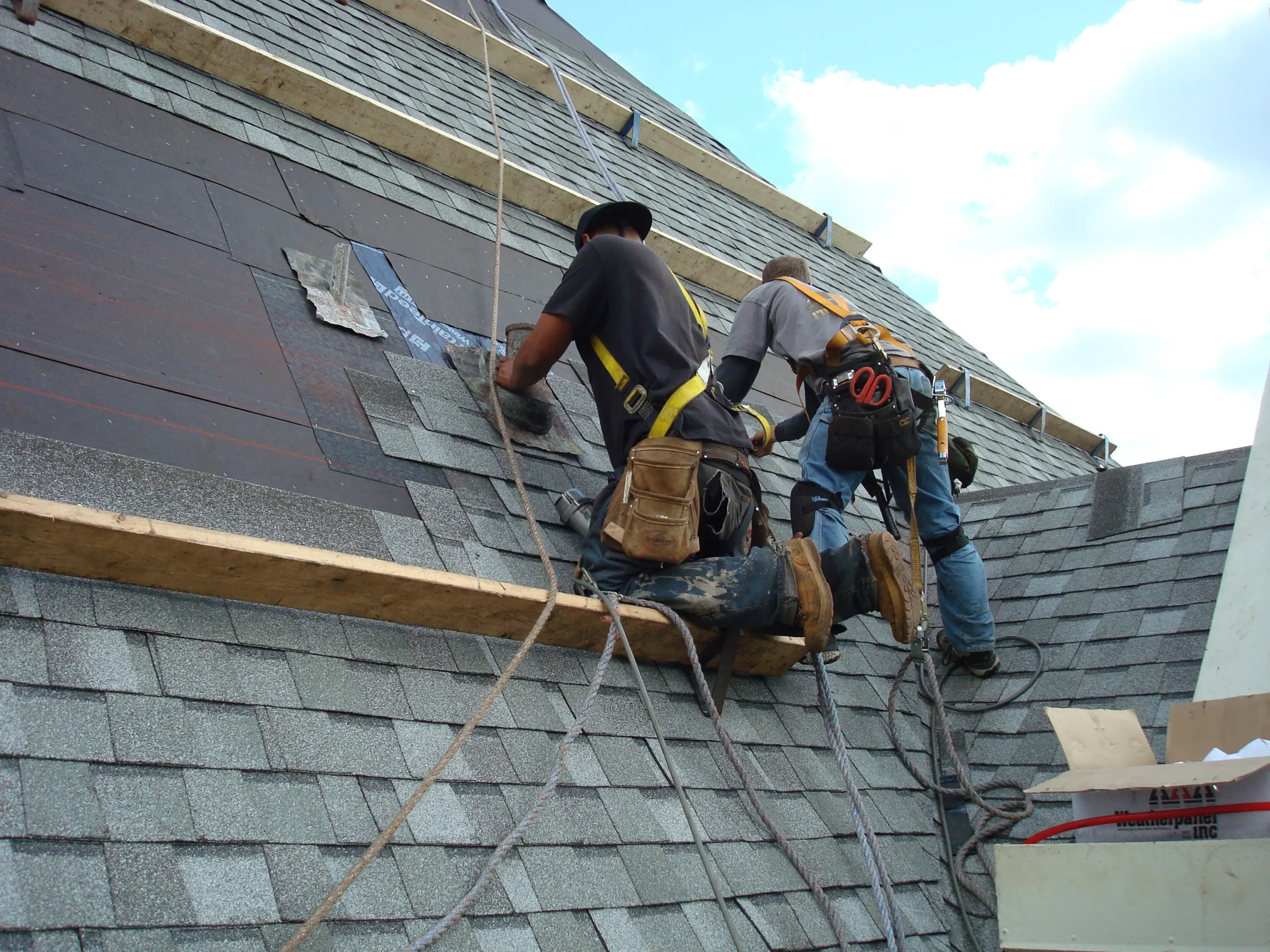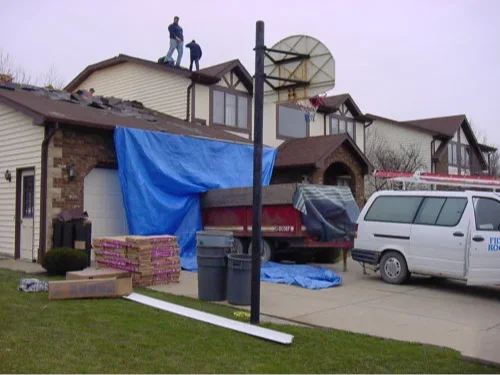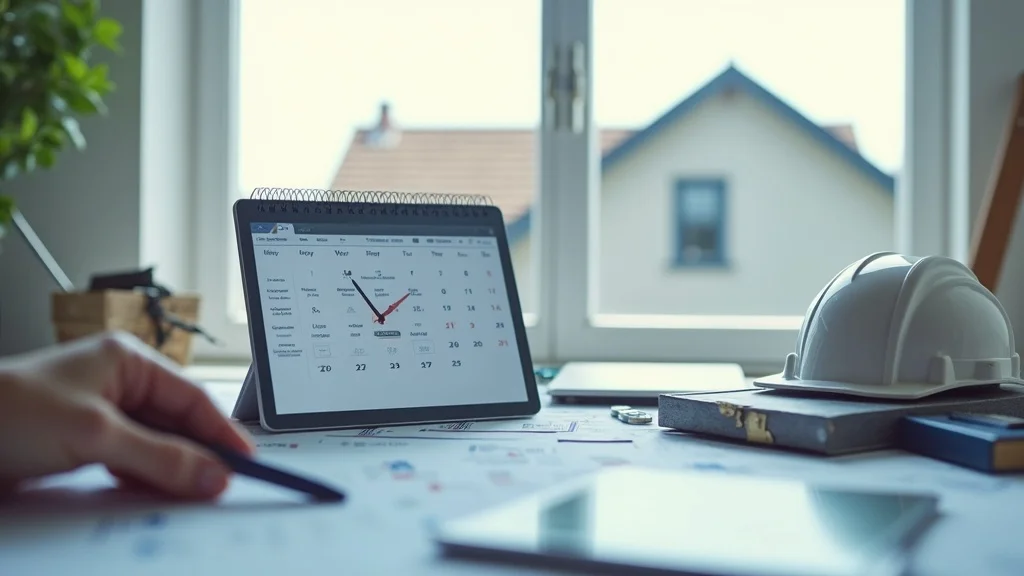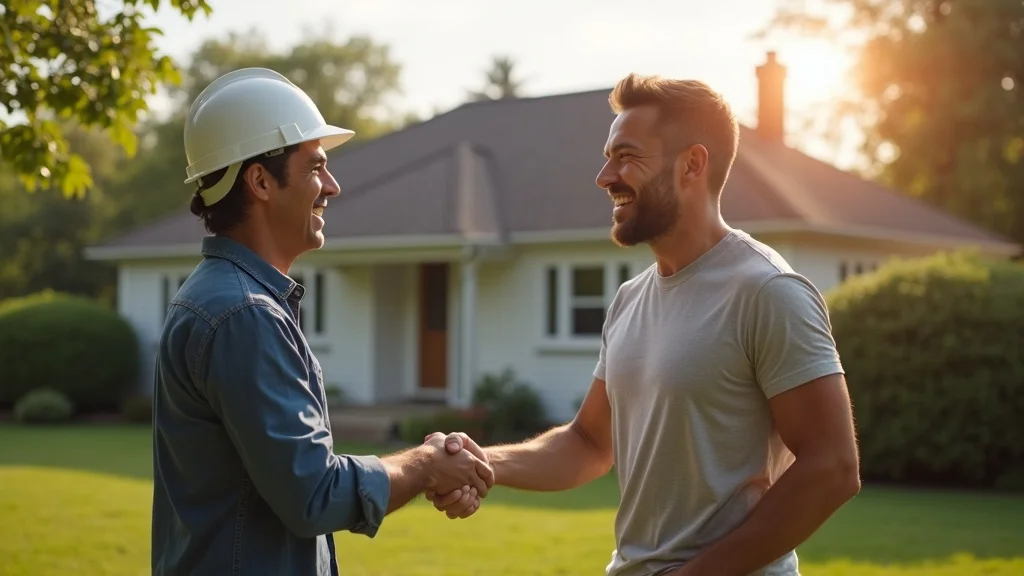12 Questions to Ask Before Hiring a Roofing Contractor
Startling Fact: Over 70% of roof replacements are due to improper installation, not storm damage. Before signing a roofing contract, understanding who you’re trusting with your roof can mean the difference between peace of mind or ongoing roof repair headaches. If you’re serious about protecting your home, don’t leave hiring a roofing contractor to chance—equip yourself with the right questions to ensure a quality roof and a smooth, transparent process.
Why Asking the Right Questions Matters When Hiring a Roofing Contractor
“Your roof isn’t just shingles – it’s your family’s first line of defense. Don’t leave your choice to chance.” – John Petrozzi, Owner of Fiddler Roofing
-
-
Unconventional Fact: Over 70% of roof replacements are due to improper installation, not storm damage.
-

When it comes to hiring a roofing contractor, asking the right questions isn’t just a formality—it’s your best defense against costly roof repairs, substandard workmanship, and warranty issues. Many homeowners fall into the trap of focusing only on price or availability. However, the true cost of a roof replacement often becomes apparent once a leak develops or an insurance claim fails due to improper installation. Reputable roofing contractors will not shy away from in-depth questions about their licensing, insurance, crew, and roofing materials—and you shouldn’t hesitate to ask. The roof protects everything beneath it; it pays to invest time up-front in choosing a roofing contractor with a proven track record and a professional roofing contract that covers every detail.
What You’ll Learn About Hiring a Roofing Contractor
-
-
How to recognize trustworthy roofing contractors
-
-
-
Risks of skipping vital questions in your hiring process
-
-
-
Expert-backed questions every homeowner should ask
-
-
-
Understanding roof replacement and roofing contract essentials
-
By the end of this guide, you’ll know exactly which questions separate a professional roofer from a potential liability—and how to safeguard both your home and finances by insisting on clear, written estimates and transparent answers.
Table: Key Questions to Ask Before Hiring a Roofing Contractor
|
Question |
Why It’s Important |
What to Listen For |
|---|---|---|
|
Are you licensed and insured? |
Ensures legality and financial protection for roof repairs or accidents on site. |
Proof of license and liability/workers’ comp documentation |
|
Do you use subcontractors? |
Impacts quality control and accountability in your roofing project. |
Directly employed, trained crews; process for vetting any subcontractors |
|
How long have you been in the roofing business? |
Experience signals reliability and ability to handle complex roof replacement or repair jobs. |
Local track record, references, and years in business |
|
Can you provide local references or reviews? |
Validates service quality and builds trust through community reputation. |
Recent references and testimonials, preferably in your neighborhood |
|
What roofing materials do you recommend, and why? |
Material choices impact warranty, roof deck protection, and long-term performance. |
Climate-appropriate materials, flexibility, manufacturer partnerships |
|
Do you offer a written estimate and detailed contract? |
Prevents misunderstandings and hidden fees in roof replacement and repairs. |
Detailed, itemized estimates and transparent contract terms |
|
What warranties are included with your roofing system? |
Protects your investment by covering materials and labor after installation. |
Manufacturer and workmanship warranties, length, and coverage details |
|
How will you protect my property during the project? |
Keeps your landscaping, siding, and property safe from damage and debris. |
Use of tarps, site cleanup process, landscape protection plan |
|
Will you obtain all necessary permits? |
Ensures compliance with local building codes and protects resale value. |
Contractor takes responsibility for permits and code compliance |
|
How do you handle unexpected issues? |
Addresses change orders and potential costs from hidden roof or deck damage. |
Transparent process, documentation, and homeowner approval |
|
What is the expected timeline for my project? |
Prevents surprises and helps you plan for roof repair or replacement disruptions. |
Realistic schedule, weather contingencies, and communication plan |
|
Why should I choose your company? |
Highlights the roofer’s unique credentials and commitment to quality roof installation. |
Dedicated, trained crews, local experience, BBB accreditation |
1. Are You a Licensed and Insured Roofing Contractor?
Proof of Licensing and Liability Insurance
-
-
Why hiring a roofing contractor with proper credentials matters
-
-
-
Insurance coverage for roof replacement and repair projects
-
Before even considering a roofing contractor for your home, confirm that they are fully licensed and insured. This isn’t just about ticking boxes—licensing proves the contractor meets local building code requirements and is approved to operate in your area. Insurance, especially general liability and workers’ compensation, protects you from responsibility in case an accident or property damage occurs during roof replacement or roof repair. The right documentation separates a professional roofing contractor from a risky business venture and provides you the security that your home and investment are protected. Don’t accept verbal assurances; ask to see up-to-date certificates of both licensing and insurance, and check that they match the roofing contractor’s name and address. Reliable roofing companies expect you to verify their credentials, and will have this paperwork ready without hesitation.
2. Do You Use Subcontractors for Roof Replacement or Repairs?
The Risks and Benefits of Subcontracted Work in Roofing Contracts
-
-
Impact on roofing system quality and accountability
-
-
-
How to confirm subcontractor credentials
-
Some roofing contractors use subcontractors for labor, which can be a double-edged sword. On the one hand, subcontractors may allow rapid scaling during busy roof replacement seasons. On the other, lack of direct oversight can compromise workmanship, accountability, and even warranty fulfillment. If your potential roofer uses subs, ask for proof that all subcontractors are properly licensed and insured—any gaps could leave your home exposed to risk. A roofing contractor that employs its own, factory-trained team (like Fiddler Roofing) maintains better quality control, communication, and consistency in your roofing system, giving you true peace of mind throughout your project.
3. How Long Have You Been in the Roofing Business?
Why Experience Matters in Roof Repair and Roof Replacement
-
-
Identifying long-term, reliable roofing contractors
-
-
-
Assessing professionalism and stability
-

When it comes to major investments like a roof replacement, longevity matters. Seasoned roofing contractors with decades of experience have encountered most roofing material types, regional building codes, and unexpected scenarios around pipe boots, roof decks, and flashing. An established business is less likely to cut corners and more likely to honor warranties when issues arise with your roofing system. Ask about years in business and how many roofs have been completed locally. Companies with a proven track record in your region can connect you with neighbors and references; their stability and reputation will put your mind at ease, knowing they’ll be around if future roof repairs are needed.
4. Can You Provide Local References or Roofing Contractor Reviews?
Validating Service with BBB Accreditation and Local Testimonies
-
-
Choosing a roofing contractor with a strong local presence
-
-
-
How references build trust
-
Don’t just take a potential roofer’s word about their expertise—insist on recent, local references and reviews. A reputable roofing contractor should provide a list of satisfied customers in your area, preferably in your own neighborhood. Look up the company’s standing with the Better Business Bureau (BBB accreditation) and consult independent review sites. Strong local references mean the roofer is trusted and involved in your community, not a fly-by-night operator. Positive feedback and transparency throughout the process build long-term trust and reinforce the company’s commitment to quality roof installation and continuous support long after the job is done.
5. What Roofing Materials Do You Recommend, and Why?
Assessing Roofing System Options Including Pipe Boots and Shingles
-
-
Choosing materials for your climate
-
-
-
Understanding the impact on warranty and longevity
-
The right roofing material makes all the difference in durability, appearance, and cost. Ask your contractor which shingle or roofing system they recommend for your climate (heavy snow, rain, or strong sun), and why. High-quality pipe boots, underlayment, and flashing are often as important as the shingle color or brand, guarding against leaks at vulnerable seams. Discussing these choices demonstrates the roofer’s technical knowledge and willingness to educate. Look for contractors who partner with top manufacturers; this usually brings stronger warranty coverage and peace of mind, ensuring your roof is built to last—not just to pass inspection. A transparent answer here ensures the roof replacement process protects your home for decades, not a season.
6. Do You Offer a Written Estimate and Detailed Roofing Contract?
What to Look For in a Roofing Estimate and Contract
-
-
Key elements in a roofing contract
-
-
-
Avoiding hidden fees in roof repair and replacement
-

Never start a roofing project without a comprehensive, written estimate and a clear contract. The written estimate should detail materials, labor, warranty, timeline, payment terms, and scope of work—providing full financial transparency before roof replacement or roof repair begins. Watch for vague descriptions or missing costs, which can mean hidden fees later. The best roofing contractors will review the document line by line, answer your questions, and adjust as needed. Ask for copies of manufacturer warranty policies and confirm how change orders are handled in the roof replacement contract. A complete paperwork trail safeguards your investment and provides clarity if disputes arise.
7. What Warranties Are Included with Your Roofing System?
Understanding Manufacturer and Workmanship Warranties
-
-
Roofing contractor commitment after project completion
-
-
-
Typical coverage for roof replacement and repair services
-
A robust roofing system warranty covers both the materials (from the manufacturer) and the labor (provided by the contractor). Manufacturer warranties typically protect against defects in shingles, pipe boots, and underlayment, while workmanship warranties guarantee correct installation—for both roof repair and full roof replacement. Ask for these documents in writing. Clarify coverage timeframes, transferability if you sell your home, and what isn’t covered (like severe weather damage or neglect). Professional roofing contractors clearly explain all warranty options; it’s their way of standing behind the roof and giving homeowners the confidence that support continues long after the last shingle is installed.
8. How Will You Protect My Property During the Roof Replacement?
Safety Measures and Site Cleanup
-
-
Use of tarps, magnetic sweepers, and landscaping protection
-
-
-
Cleaning up after roof repair jobs
-

Protecting your property throughout the roof replacement or roof repair process is just as important as the quality of your new roof. A professional roofer will explain how they safeguard landscaping, siding, windows, and other features from falling shingles and debris using tarps, plywood shields, and magnetic sweepers for stray nails. Daily site cleanup minimizes hazards and mess, while thoughtful contractors will check for hidden damage as part of their final walk-through. If your contractor doesn’t have a firm property protection and cleanup plan, it’s a clear red flag—every detail should be spelled out in the roofing contract to ensure your home is respected during and after the project.
9. Will You Obtain All Necessary Permits for the Roofing Project?
Importance of Compliance with Local Building Codes
-
-
Why permits matter for roof replacement
-
-
-
Risks of unpermitted roof repair
-
Local building codes exist to ensure roof replacements and repairs meet minimum safety and performance standards. A reputable roofing contractor will secure all required permits before starting work and will schedule inspections as needed. This step protects you from fines and supports future resale—if you ever need to show buyers or insurers that your roof was installed to code. Cutting corners on permits often signals a contractor who may ignore other safety or legal requirements. Always ensure permit acquisition is included in your written estimate and roofing contract, so every phase of your roofing system’s installation is compliant and above board.
10. How Do You Handle Unexpected Issues During Roof Repair or Replacement?
Transparency in Addressing Hidden Damage
-
-
Approval process for change orders
-
-
-
Minimizing last-minute roofing contract surprises
-
Beneath old roofing, contractors can sometimes discover hidden roof deck rot, water damage, or missing flashing like pipe boots. The mark of a trustworthy roofing contractor is honesty and transparency about any new findings. Ask potential roofers how they document unforeseen damage, communicate solutions, and obtain your written approval before making changes to the estimate or roofing contract. A professional roofer will show you photos, offer fair pricing for additional work, and never proceed without your consent. This protocol keeps the budget predictable and the process professional—demonstrating the contractor’s respect for both you and your investment.
11. What Is the Expected Timeline for My Roofing Project?
How Long Does Roof Replacement or Repair Take?

Knowing when your roof replacement or roof repair will begin and end helps manage household disruption and set clear expectations. Ask for a project timeline up-front, including start date, estimated completion, and any contingencies for weather delays or material supply. A systematic roofer will also outline daily schedules, crew size, and how you’ll be notified of any changes. Most standard roof replacements take one to three days, although larger or more complex roofing systems may require additional time. The ability of your contractor to stick to promised deadlines, communicate clearly, and handle unforeseen circumstances is a true sign of professionalism and reliability.
12. Why Should I Choose Your Roofing Contractor Services?
What Sets Professional Roofers Like Fiddler Roofing Apart?
-
-
Dedicated crews vs. subcontractors
-
-
-
Long-standing local trust and BBB accreditation
-
In an industry where new names come and go, choosing a roofing contractor with a longstanding local presence can make all the difference. Fiddler Roofing, for example, never uses subcontractors: their factory-trained, MSA-certified teams are dedicated to quality roof replacements and repairs—not rushed, incentive-driven piecework. Their nearly five decades of experience are backed by BBB accreditation, glowing references, and the assurance of always working with local professionals who know your building codes and weather challenges. Make sure your contractor’s answer here sets them apart, offering community trust, transparency, and a clear focus on customer satisfaction—not just the lowest bid.
Key Takeaways for Hiring a Roofing Contractor You Can Trust
-
-
Never sign a roofing contract without asking these 12 questions
-
-
-
Professional roofer credibility is essential for property protection
-
-
-
Demand written estimates and clear warranties
-
By using these questions as your checklist, you’ll not only protect your home and finances but also guarantee that your roof replacement or repair achieves the highest standards of safety and longevity.
A professionally produced video outlining the step-by-step process of hiring a roofing contractor—from initial research and evaluating credentials to finalizing written contracts and seeing the completed roof replacement project. Includes clips of roof inspections, crews at work on roofing systems, and happy homeowners reviewing their new roof.
Watch a detailed walkthrough of a sample roofing contract, highlighting the essential elements you should inspect—including warranty terms, payment schedule, site protection, and change order policies.
People Also Ask: Your Roofing Contractor Questions Answered
How much do roofing contractors charge per hour?
-
-
Roofing contractor hourly rates vary by region, service complexity, and experience. The typical cost ranges from $35 to $90 per hour, with additional fees possible for specialized work or emergency roof repairs.
-
What is the best way to hire a roofer?
-
-
Hiring a roofing contractor starts with verifying licensing and insurance, collecting written estimates, checking local references, and ensuring a clearly written roofing contract. Prioritize professional roofers with proven experience.
-
What is the average cost of a new roof in Arkansas?
-
-
The average cost of roof replacement in Arkansas is between $5,500 and $12,000, depending on materials, roofing system size, and roofing contractor expertise.
-
Is $30,000 too much for a roof?
-
-
$30,000 for a roof may be excessive for most standard homes but could be reasonable for very large, custom, or complex roofing systems. Always get multiple written estimates from reputable roofing contractors before deciding.
-
Frequently Asked Questions About Hiring a Roofing Contractor
-
-
How do I verify a roofing contractor’s license?
Ask the contractor for their state license number and verify with your local building department or use an official online search tool for contractor credentials.
-
-
-
What should be included in a roofing contract?
A clear roofing contract should include a detailed written estimate, scope of work, materials used (including pipe boots and underlayment), payment schedule, warranty details, start/end dates, site protection plans, and protocols for change orders.
-
-
-
How long should a standard roof repair last?
Most standard roof repairs last 10-20 years depending on the quality roof materials used, installation technique, and severity of previous roof leaks or deck damage. Regular maintenance extends service life.
-
-
-
What is BBB accreditation and does it matter for choosing a roofing contractor?
BBB accreditation verifies a roofing contractor’s commitment to ethical business practices and customer service. When comparing potential roofers, prioritize those with favorable BBB accreditation and customer reviews.
-
Conclusion: Your Next Steps to Hiring the Right Roofing Contractor
“Don’t hire a contractor who avoids these questions. Our answers testify to our commitment and experience.” – John Petrozzi, Fiddler Roofing
-
-
Evaluate roofing contractors thoroughly for your peace of mind
-
-
-
Use this checklist before signing any roofing contract
-

Ready to Hire a Roofing Contractor?
-
-
Call us at716 284 1322for expert answers, a written estimate, and a roofing contract you can trust.
-
